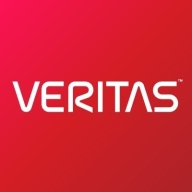

Microsoft DPM and Veritas NetBackup Appliance are key players in the data protection and recovery market. Veritas NetBackup Appliance is favored for its advanced features, while Microsoft DPM is appreciated for better pricing and support.
Features: Microsoft DPM seamlessly integrates with Microsoft ecosystems, supports disk, tape, and cloud backups ensuring robust protection for Windows environments. Veritas NetBackup Appliance provides advanced features like deduplication, diverse storage options, and strong virtual environment protection. Veritas excels in platform support, catering to extensive enterprise needs.
Room for Improvement: Microsoft DPM could enhance cloud integration, improve scalability in non-Windows environments, and strengthen cross-platform support. Veritas NetBackup Appliance might benefit from simpler installation processes, better user interface design, and more flexible pricing models for smaller businesses.
Ease of Deployment and Customer Service: Microsoft DPM offers quick deployment in Windows setups with customer service tailored to its integration features. Although Veritas NetBackup Appliance's installation is more complex, its proactive customer support streamlines large-scale deployments, particularly in complex infrastructures.
Pricing and ROI: Microsoft DPM is cost-effective at initial setup, especially for companies heavily invested in Microsoft products, delivering decent ROI. Veritas NetBackup Appliance, with a higher initial investment, offers significant long-term ROI through its comprehensive features meeting extensive enterprise demands.
The immutability feature ensures customers do not incur costs in case of ransomware, allowing for a safe restore, which means they are avoiding ransom payments, and that is a big win for the customer.
Veritas NetBackup Appliance has helped reduce costs by 30% and has improved operational efficiency.
They provide professional services that are quite good and can meet your needs.
Veritas has a very good support infrastructure with trained engineers.
Their support is good, with technical teams available 24/7.
I would rate the technical support by Veritas NetBackup Appliance a six or seven out of ten, considering both response time and overall competence.
I would rate the scalability of the product as a nine out of ten.
The product is very stable, rating between eight and nine out of ten.
I am satisfied with its performance and would rate it ten out of ten for stability.
They do lab tests before releasing any patch, so currently, the product is stable.
The backup should have compression, deduplication, and DR replication.
Microsoft DPM could improve by adding S3 backup to S3 storage capabilities.
They can do more by utilizing the data effectively to provide insights to customers about their space usage, future projections, and options for managing old data.
The only room for improvement is that the cost per terabyte is extremely high.
The main issue is with technical support and pricing.
The pricing of Microsoft solutions rates in the middle range at five out of ten.
Microsoft licensing is complex, especially for enterprise or data center solutions.
It's more costly than Commvault, which offers similar features at 70% of the price.
The price is slightly expensive for small and medium enterprises.
The cost of the product is reasonably priced.
The two-layer backup system is a particularly valuable feature in Microsoft DPM.
Microsoft DPM impacted my organization positively, and that was definitely possible.
One of the most effective features of Microsoft DPM is its integration with the entire Microsoft ecosystem.
The biggest advantage is that I do not need to manage backups on traditional tapes, which helps maintain total business continuity.
The Oracle Agent and Oracle RAC support are valuable features; they are crucial for taking backups and cloning applications.
One of the most useful features of Veritas NetBackup Appliance is the Web UI, which is a monitoring tool where you monitor all your backups.
| Product | Market Share (%) |
|---|---|
| Veritas NetBackup Appliance | 0.8% |
| Microsoft DPM | 0.9% |
| Other | 98.3% |


| Company Size | Count |
|---|---|
| Small Business | 9 |
| Midsize Enterprise | 7 |
| Large Enterprise | 7 |
| Company Size | Count |
|---|---|
| Small Business | 20 |
| Midsize Enterprise | 9 |
| Large Enterprise | 27 |
Microsoft Data Protection Manager (DPM) is an enterprise backup system that can be used to back up data from a source location to a target secondary location. Microsoft DPM allows you to back up application data from Microsoft servers and workloads, and file data from servers and client computers. You can create full backups, incremental backups, differential backups, and bare-metal backups to completely restore a system. Microsoft DPM can store backup data to disks for short-term storage, to Azure Cloud for both for short-term and long-term storage off-premises, and to tapes for long-term storage, which can then be stored offsite. Backed up files are indexed, which allows you to easily search your recovered data.
Microsoft DPM contributes to your business continuity and disaster recovery strategy by facilitating the backup and recovery of enterprise data, ensuring resources are available and recoverable during planned and unplanned outages. When outages occur and source data is unavailable, you can use DPM to easily restore data to the original source or to an alternate location.
Key Features of Microsoft DPM:
Reviews from Real Users
Microsoft DPM stands out among its competitors for a number of reasons. Two major ones are its robust and flexible backup capabilities and its being easy to manage with one central dashboard.
William M., the head of ICT infrastructure & security at a tech services company, notes, "The automated procedure is quite good for us, as it is able to capture all of the information that we require. The compatibility is very good. We have an IBM AS/400 machine in our office that we're using, and we're able to back it up fine. This is the same for other systems, as well. I think that overall, it is really adaptable, compatible, and scalable."
Mohammed I., a managing director at Adalites, notes, "I would definitely recommend data protection DPM. It has an application backup, a file backup, a system backup and a hypervisor. It works flawlessly, never a problem."
Rodney C. a system analyst at a financial services firm, writes, "The most valuable feature is that DPM has an index so individual files can be searched. This is our primary tool for recovering deleted files or folders. Once we implement a System Center Operations Manager, all of our DPM servers can then be seen on one dashboard."
Veritas NetBackup Appliance is a comprehensive data protection solution that combines hardware and software into a single, integrated platform. It offers scalable storage capacity, high-performance backup and recovery, and advanced deduplication technology. With its intuitive user interface and centralized management, it simplifies data protection operations and reduces administrative overhead.
The appliance supports a wide range of applications, databases, and operating systems, ensuring comprehensive protection for both physical and virtual environments. It also provides seamless integration with cloud storage, enabling organizations to leverage the benefits of hybrid cloud backup.
With its robust security features and built-in resiliency, the Veritas NetBackup Appliance ensures the integrity and availability of critical data, making it an ideal choice for businesses of all sizes.
We monitor all Backup and Recovery reviews to prevent fraudulent reviews and keep review quality high. We do not post reviews by company employees or direct competitors. We validate each review for authenticity via cross-reference with LinkedIn, and personal follow-up with the reviewer when necessary.